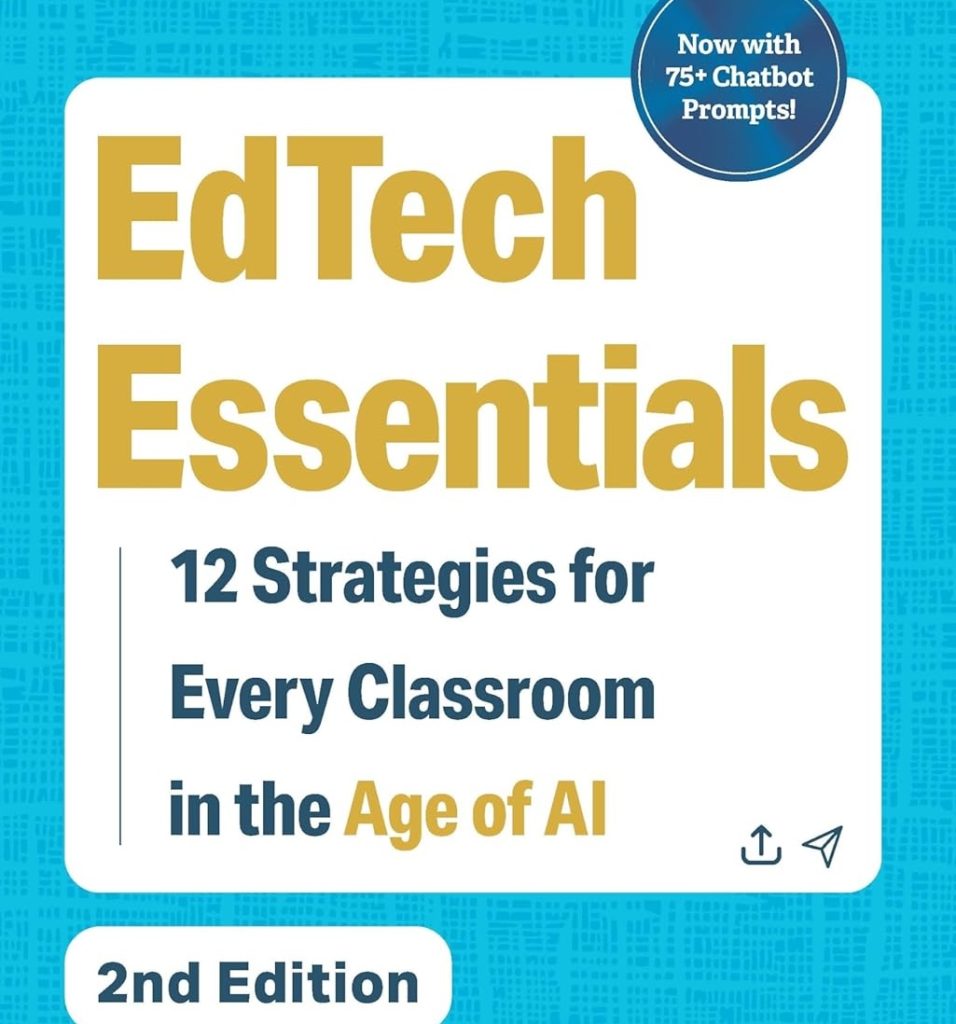
I recently attended a (non-Learning-and-the-Brain) conference, and saw a thoughtful presentation that included a discussion of teachers’ professional standing.
In this blog post, I want to …
- summarize this speaker’s thoughtful argument,
- explain my own reasons for doubting it, and
- consider some weaknesses in my own argument.
Teachers as Pilots
The speaker started by summarizing a common claim about teachers’ professional independence:
“Because teachers are highly-trained professionals, we should have the same freedom for independent action and creativity that other professionals enjoy. Rather than scripting and constraining teachers, schools should allow them the leeway to think, act, and teach with meaningful independence.”
I should be clear, by the way, that this speaker’s summary is NOT a straw man. I know that people make (roughly) this argument because a) I’ve heard other people make it, and b) I’m going to make a similar argument in just a few paragraphs.
To interrogate this pro-independence argument, the speaker asks us to think about other highly esteemed professionals: doctors, airline pilots, and engineers.
In every case, these professionals work in highly constrained conditions. In fact, we would be rightly shocked were they to want to escape those constraints. Imagine:
- If a pilot were to say: “today I think it would be fun to go through this pre-flight check list in reverse order. And, heck, I think I’ll skip step #27; I’ve never understood what it was for!”
- If an ER doctor were to say: “I understand that you’re experiencing chest pains, and the protocols suggest several tests. But honestly: you look healthy to me. And, I’m feeling lucky today. So let’s assume it’s a touch of nerves and get you some nice chamomile tea.”
We would be horrified!
Pilots and doctors work within well-established constraints, and have a strict ethical obligation to follow them.
For this reason, society rightly condemns instances where these professionals go outside those constraints.
Another example: when engineers get sloppy and bridges fall down mid-construction, we feel both horror and surprise to learn that they didn’t follow professional codes that govern their work.
These examples — the speaker said — show that teachers’ demands for professional freedom are misplaced.
Tight constraints do not violate our professional standing; they embody our professional standing.
Pushing Back: Reason #1
Although I understand these arguments as far as they go, I disagree with the speaker’s conclusion. Let me see if I can persuade you.
I think that doctors, pilots, and engineers are not good analogues for teachers, because the systems on which doctors, pilots, and engineers operate are unified, coherent, and designed to function as a whole.
Here’s what I mean:
- An airplane’s ailerons and flaps have been scrupulously designed to act upon the wings in a specific way. So too the engines and the rudders. And, frankly, almost everything else about the airplane.
Because airplane parts have been structured to function together, we can have specific, precise, and absolute rules the operation of planes. When the flaps do this, the airflow over the wing changes in entirely predictable ways. The plane will, in these circumstances, always turn, or ascend, or land, or whatever.
Yes, special circumstances exist: turbulence, wind shear, or thunderstorms. But even these special circumstances call for predictable and consistent responses: responses that can be trained, and should be executed precisely.
- A bridge has been designed to balance the forces that act upon it and the materials used to build it. Steel does not wake up one day and decide to have the strength of aluminum. Gravity does not vary unpredictably from day to day or mood to mood.
Because bridges have been structured to function in a particular way, engineers can have specific, precise, and absolute rules about their construction. Engineers don’t insist on moment-by-moment freedom because the bridges they build have entirely predictable constraints.
If, however, you have worked in a classroom, you know that such absolute predictability – based on the unity of the system being operated – has almost nothing to do with a teacher’s daily function.
- Gravity doesn’t work differently before and after lunch, but students do.
- An airplane’s rudder doesn’t have a different response to the pilot’s input, but this student might have a very different response than that student to a teacher’s input.
- An EKG (I assume) shows a particular kind of result for a healthy heart and a distinct one for an unhealthy heart. A student’s test results might mean all sorts of things depending on all sorts of variables.
- By the way: all of these examples so far focus on one student at a time. They don’t begin to explore the infinite, often-unpredictable interactions among students…
- …or the differences among the topics that students learn…
- …or the cultures within which the students learn.
We shouldn’t treat a classroom system as a straightforwardly stimulus-response system (like an airplane, like a bridge) because classrooms include an unpredictable vortex of possibilities between stimulus and response.
The best way – in many cases, the ONLY way – to manage that vortex: give teachers professional leeway to act, decide, change, and improvise.
The Continuum of Professionalism
Let’s pause for a moment to consider other kinds of professionls — say, ARCHITECTS, or THERAPISTS.
We allow — in fact we expect — subsantial freedom and creativity and variety as they do their work.
Of course, these professionals work within some constraints, and follow a well-defined code of ethics.
But those modest contraints allow for great freedom because…
… this client wants her house to look like a Tudor castle, while that client wants his to look like Falling Water, or
… this client struggles with PTSD and doesn’t want to take meds, while that client is managing bipolar disorder.
In other words: some professions do permit — in fact, require — strict limitations. But not all professions do. And, in my view, ours doesn’t. We’re more like architects than engineers.
Pushing Back: Reason #2
I promised two reasons that I resist the call for doctor-like-narrow-constraints. Here’s the second.
The analogies provided in this case all focus on people dying. The plane crashed. The heart-attack patient perished in agony. The bridge crushed workers and passers by.
In these professions, constraints literally save lives.
Now, I (like all teachers) think that education is important, and can transform lives and societies for the better. Bad educational practices do have damaging results for individuals and communities.
But: no one ever died from a bad English class. (I know; I’ve taught bad English classes. My students didn’t learn much, but they survived.)
If, in fact, teachers should work within tight constraints — checklists, scripts, step-by-step codes — the argument in favor of that position should be persuasive without the threat of death to energize it.
I’m Right, but I Might be Wrong
I promised up top that I’d include the weaknesses in my argument. I see at least four.
One:
Obviously, novice teachers require lots of support, and should work within tighter constraints than experienced teachers.
And, some teachers aren’t very good at their jobs. We might reasonably decline to trust their professional judgments.
Also: some people LIKE scripted curricula. I don’t think we should take them away from people who want them.
Two:
Teachers shouldn’t be scripted or managed detail by detail, but we should operate within well-established cognitive science principles. For instance:
- Retrieval practice is, in almost all cases, better than simple review
- Working memory overload is, in ALL cases, a detriment to learning
- Myths like “learning styles” or “right/left brain learning” should not be a guide for instruction.
In other words: my call for independence isn’t absolute. We should know our subject and our craft — and then work flexibly and appropriately with those knowledge bases.
Three:
I suspect that a few specific disciplines might allow for precise scripting.
The teaching of reading or early math, for instance, might really benefit from doing EXACTLY step A and then EXACTLY step B, and so forth.
However:
Even in this case, I suspect we would need LOTS of different scripts:
… “typical” readers,
… students with dyslexia, or diagnosably low working memory,
… students with unusually low background knowledge,
… students whose home language isn’t the instructional language,
and so forth.
In other words: even a scriptable subject matter requires teacherly expertise and inventiveness in moving from script to script.
Four:
My own biases no doubt shape my argument.
I myself am a VERY independent person, and I have a penchant for holding teachers in great esteem.
For these reasons, I probably react more strongly than others do to the suggestion that teachers should be tightly constrained to meet our professional obligations.
In other words: I do have a logical argument in support of my position.
a) Flying an airplane is an inappropriate analogue for teaching a class;
b) Tight constraints are almost certainly impossible in the work we do.
But: that logical argument almost certainly gets much of its passion from a realm beyond logic.
In Sum
Ideas about pedagogy often rest on assumptions about teacher independence. For that reason, I’m glad that the speaker raised this point specifically, and made a strong argument to support one point of view.
I hope I’ve persuaded you that teachers — like architects — need informed independence (within some constraints) to do our work.
Even if not, I’m hopeful that thinking through these questions has proven helpful to you.
In this tweet threat, the invaluable Peps Mccrea gives an excellent example of a situation where teachers’ communal adherence to the same norms benefits students and schools.






